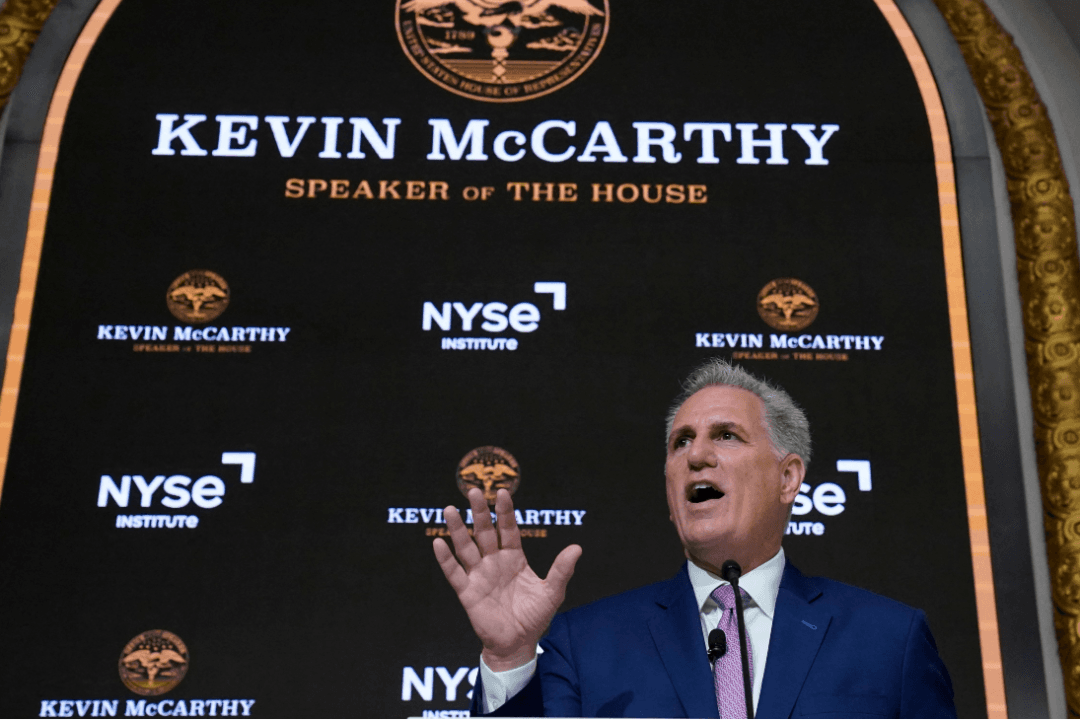The House of Representatives will hold a vote on a proposal to lift the nation’s debt ceiling until sometime in 2024, according to House Speaker Kevin McCarthy (R-Calif.), relieving anxiety about a potential default on U.S. financial obligations.
McCarthy, during a speech at the New York Stock Exchange on April 17, also outlined the broad strokes of a Republican plan to reduce federal spending, which will also be voted on by the House “in the coming weeks.”





